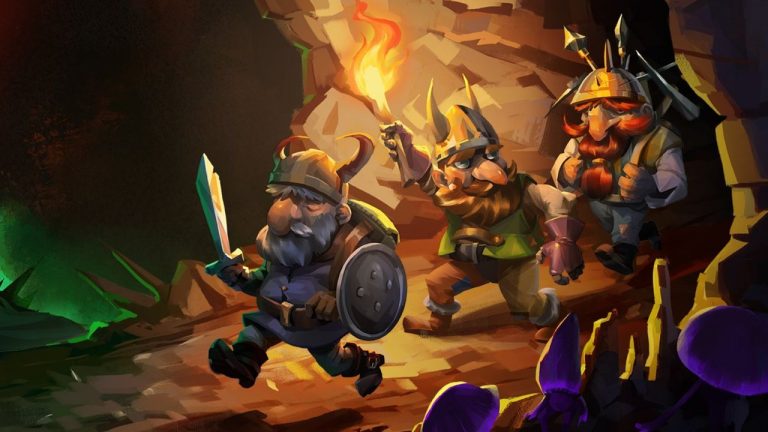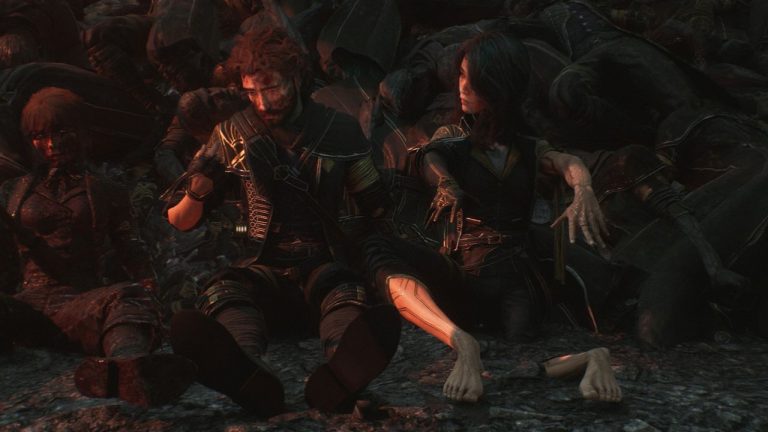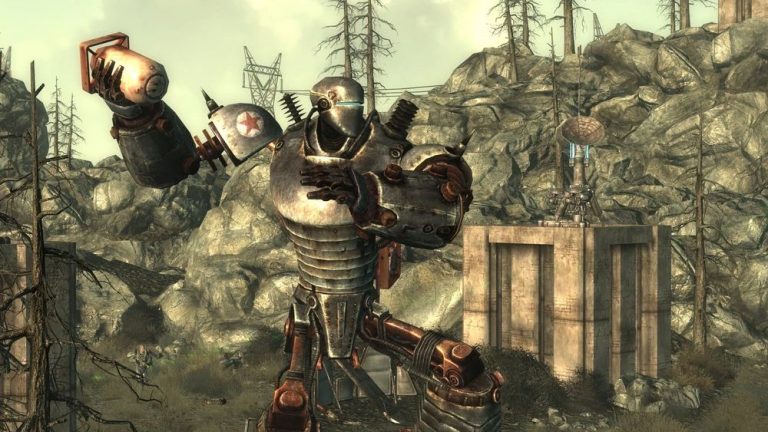What is it? A Civ-like with a new spin on nations and victory conditions.
Expect to pay £35/$40
Developer C Prompt Games
Publisher Paradox Interactive
Reviewed on i7 9700K, RTX 2080 TI, 16GB, Windows 10
Steam Deck Unsupported
Link Official site
The thing about plagues is that they tend to catch everyone off guard. That was certainly the case when I triggered a plague age in Millennia, decimating the Roman Empire’s population and prompting a hurried examination of the sanitation buildings in all my cities’ construction menus. But since these undesirable ages are triggered by the accumulation of chaos and unrest in the first place, it wasn’t as though my Roman empire was in great shape before the coughing started.
I’d been fighting off copious barbarians for so long that unrest had been growing across all my regions. So much so that I inadvertently triggered a chaos event: a rebellion, which spawned pikemen and cavalry units next to every regional capital. That meant I had to commit even further to channelling all my resources into a military offensive on several fronts, which raised unrest even more, until the plague doctors arrived and my population dropped by a third. An absolutely brutal sequence of events which, in equal measure, earned my begrudging respect for the game and made me want to delete it immediately.
(Image credit: Paradox)
Millennia is, as you’ll have noticed, quite a lot like Civilization. Like Amplitude’s Humankind, it promises an enticing shakeup of the decades-old formula and offers a fresh spin in particular on how nations work, how eras are ushered in, and how you achieve victory.
And on paper, that’s very seductive. For anyone who’s lost hundreds of hours to Firaxis campaigns over the years, there’s certainly a justification for an outsider to turn up and remix Civ’s tenets. The tiresome combat, the way the late game silts up as you watch numerous units complete their boring, pointless moves from hither to thither, the same, well-worn victory strategies we’ve all been using since the ’90s. Humankind got really granular about how you defined your culture, and made good on the concept that your people are defined as much by what happens to them as which menu boxes you click. Fresh blood in this sub-genre, then, can only be a good thing.
I must admit that sentiment wasn’t always foremost in my mind during several unilaterally savage campaigns in Millennia, however. It has a way of burying salient menus and mechanics within its UI, and of teaching you about its peculiarities from the Firaxis formula by simply springing events on you. If you’re used to those leisurely, controlled science victories against easy AI in Civ, this by comparison feels like navigating history’s toughest challenges with Liz Truss’ cabinet. Even when you turn the AI down to merely adept.
(Image credit: Paradox)
Whereas Civ generally rewards a really concentrated effort towards one of its victory conditions from the outset, Millennia wants you to be a generalist. There are juicy unlocks waiting in its labyrinthine menus, tied to several different currencies—government, exploration, warfare, engineering, diplomacy and arts. Separate to those, you’re amassing research and culture, and founding and spreading a religion. And it really doesn’t pay to neglect any of them.
To its credit, that makes for a refreshingly different approach to amassing hex tiles and conquering foreign lands, one that occasionally feels logical and true to the ‘define your people by your actions’ promise. Do loads of battles and you build up plenty of warfare points that make you even more potent in conflict. You can spend warfare points to reset a unit’s movement points that turn, or instantly heal them, which in turn encourages more battles and more warfare points.
That’s when it’s working as intended. However, it’s not always that sensible. I managed to leverage a huge advantage in the early rounds of my first campaign by farming culture points to spawn Spartans, a dominant ancient era military unit whose appearance didn’t feel very, well… cultured. Similarly, I always felt short of the government points that spawn settlers and integrate the vassal states that those settlers create for you. Nothing I did with my cities’ production seemed to give me a boost in this area until the Age of Discovery, when setting explorers off on expeditions had a chance to net me a massive +30 government points. Which was welcome, don’t get me wrong. But what does sending someone up a mountain have to do with governmental efficacy?
Identity crisis
(Image credit: Paradox)
Another faintly fumbled chance for Millennia to assert a deviation from Civ comes with the chance to adopt a National Spirit for each age which gives you unique perks and units. It sounds like a way to tailor your nation according to the victory you’re going after, but it plays out feeling more like a concession to the fact that nations are basically interchangeable. I chose the Warriors spirit in the early game and buffed up my military units, which felt quite Roman to me at the time but didn’t grant me any unique units. Similarly, the Olympians diplomacy buff I picked for the next era was a bundle of perks selected from a menu that speaks no more to Roman civilization than the Persians, Germans or Zulus I was waging war with.
National Spirits have to work this way, because nations don’t have an identity. Their only unique traits are the city names that appear when you found them. Otherwise, there’s nothing particularly American about the way America’s AI goes about a campaign, nor anything Spanish about the Spanish. There are perks for each nation, but they’re simply assigned from a list, as you learn when, like me, you excitedly delve into the custom nation creator then realise how the system actually works.
The knock-on effect is that during a campaign, you don’t feel like your own nation has a distinct character—nor do your enemies. Diplomacy isn’t exactly thrilling even in big daddy Civ, but at least you get well-illustrated leaders and their quirks. Without them, Millennia really does feel like you’re having conversations with colour-coded menus. That robs being at war of sufficient drama, or forging alliances of an emotive payoff.
(Image credit: Paradox)
Despite that rather flimsy approach to crafting its nations, some of Millennia’s ideas do lead you to feel like you’ve built something unique. City production is all about the goods it can produce, rather than the resources that lie within your territory, and this leads to a complex but gratifying sub-game of building supply chains using improvement tiles. Get it right, and you forge a nice little advantage exporting spices, lemons or iron goods. Since you can only work with the resources within your territory, there’s real replay value here from one campaign to the next as you figure out how to make good on the clay, sheep or gold within your borders.
Ages also create compelling wrinkles. I enjoyed facing a choice of upcoming ages I could progress to, some positive and some negative, and found myself working hard to avoid crisis ages and triggering good ones. And when the worst happens, those crisis ages are truly horrible to deal with, completely disrupting the strategy you had in place for centuries beforehand, but that’s kind of the point. Sometimes we need that. We need to be forced to improvise, and to have to use the resources we’ve been stockpiling in unexpected ways.
(Image credit: Paradox)
The late game falls victim to exactly the same scourges as Civ, unfortunately. Watching enemy units mill about pointlessly, and interminable waits between turns as your CPU chugs through sub-optimal code. It’s so strange to see such a single-minded Civ-like tackle elements of the formula that weren’t particularly broken in the first place, like nations or ages, but leave glaring issues like this untouched and intact.
But I’m not ready to uninstall it yet. Despite the low simmer of rage I feel as I play it, I’ve developed a respect for Millennia’s brutal approach to surviving through the eras and I remain fascinated by the supply chains within its city improvement tile system. There’s enough depth here to keep my hand in for another few campaigns, especially now that I’ve learned its opaque UI. (The diplomacy screen icon is a flag. A flag. Think how many different things a flag might refer to in a 4X game.) Firaxis can sleep quite comfortably at night knowing its dominion remains absolute, but Millennia’s dissenting voice is worth listening to for at least a few campaigns.












